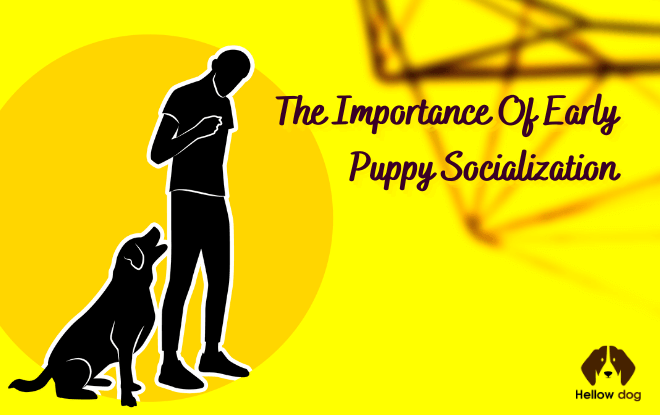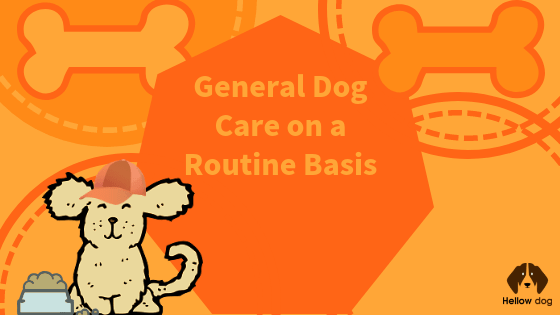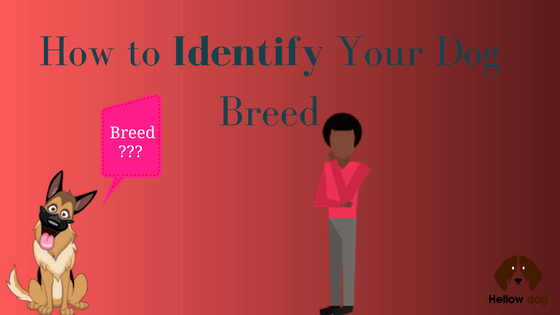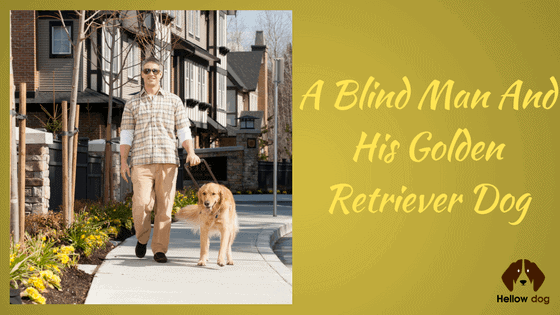Puppy socialization refers to the process of introducing a young dog to various experiences, including different environments, people, smells, sights, and other animals, to ensure they grow up to be well-adjusted and confident. This article aims to explore the science behind it, explore its benefits, and underscore its role in shaping a dog’s future behavior.
The Science Behind Puppy Socialization
During a puppy’s initial weeks of life, they navigate a series of developmental stages. From birth to about 12 to 14 weeks, these stages play a crucial part in shaping their reactions, perceptions, and overall temperament. It is during these weeks that a puppy is most receptive and curious, providing an ideal learning environment.
The socialization process is of paramount importance within these pivotal stages. Ensuring a puppy experiences a multitude of social situations and environments during this period can positively affect their lifelong behavior and personality. For more in-depth information and expert advice, it is recommended you visit centralparkpuppies.com, a valuable resource for responsible pet ownership.
The influence of early socialization extends far beyond a puppy’s formative weeks. It profoundly impacts a dog’s future behavior, from their ability to handle stress and new environments to their reactions toward humans and other animals. An appropriately socialized puppy will grow into a confident and sociable dog, able to adapt to varying situations and interact amicably with a range of different beings.
The Benefits Of Puppy Socialization
Early puppy socialization offers a myriad of benefits that extend well beyond puppyhood. This vital process paves the way for a balanced, confident, and sociable adult dog, profoundly impacting the canine’s adaptability.
Confidence And Adjustment
Early puppy socialization cultivates a sense of security in young dogs. As they encounter various experiences early on, they learn to navigate novel situations with confidence rather than fear. This early learning helps mold them into well-rounded, sociable adults at ease with the world around them.
Reduced Behavioral Issues
Socialization plays a pivotal role in mitigating potential behavioral problems. Exposing puppies to a range of experiences and teaching them acceptable behavior can significantly lower the risk of issues such as aggression, separation anxiety, and excessive barking. A well-socialized puppy is more likely to grow into a dog that interacts positively with humans and other animals.
Enhanced Dog-Human Bonding
Socializing your puppy can fortify the bond between you two. Through positive social experiences, a puppy learns to trust their human companion, fostering a deep and enduring relationship. This mutual trust and respect form the bedrock of successful dog-human relationships.
Improved Adaptation
A well-socialized dog adapts to new environments and experiences with ease. Whether it’s a change in living circumstances, a trip to the vet, or a walk in a bustling park, these dogs handle new situations with calmness and curiosity. This adaptability can significantly enhance a dog’s quality of life and make for a more peaceful coexistence with their human family.
Lower Anxiety Levels
By exposing puppies to different environments, sounds, people, and other animals in a controlled, positive manner, you can significantly reduce their levels of fear and anxiety. An under-socialized dog may feel anxious in new situations, whereas a well-socialized dog views them with curiosity and confidence.
Socialization can be a powerful tool in raising a dog that’s happy, confident, and free from excessive anxiety. It shapes their character, ensures they are emotionally balanced, and sets the stage for a harmonious, lifelong relationship with you.
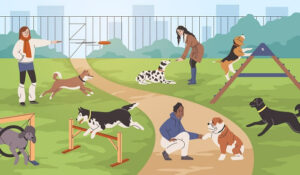
How To Properly Socialize Your Puppy
Early socialization shapes a puppy into a confident, well-adjusted adult dog. It’s an art and science involving precise timing, positive reinforcement, and a broad palette of experiences to provide your furry friend’s best start in life.
The Socialization Window
A puppy’s socialization window typically opens at around three weeks of age and closes between 12 to 16 weeks. Puppies are most receptive to new experiences and can absorb lessons quickly during this period. Ensuring your puppy has a wealth of positive experiences during this window is crucial for their emotional and behavioral development.
Safe And Effective Socialization Tips
To effectively socialize your puppy, there are several key strategies that can help.
- Positive Reinforcement: Rewards play a significant role in socialization. Whether it’s a favorite treat, a loving stroke, or verbal praise, reinforcing positive behavior will encourage your puppy to repeat it. This rewarding system can make socialization an enjoyable process for your pup.
- Consistent And Gradual Exposure: Maintaining a steady pace in introducing new experiences is key to socialization. Introducing new experiences gradually and regularly helps puppies to adjust at a manageable pace, reducing the risk of overwhelming them.
- Habituation To Handling: Make sure your puppy gets used to being handled. Touch their paws, ears, tail, and mouth regularly and pair this with rewards. This can make future grooming or veterinary visits much easier.
- Introduce Household Appliances: Expose your puppy to household appliances like vacuum cleaners, washing machines, or hairdryers. Start with the appliance off, let them investigate, then gradually use the appliance at a low setting, working your way up.
These strategies can significantly enhance your pup’s socialization process, ensuring they grow into well-rounded and adaptable dogs.
Suggested Activities
As you guide your puppy through their early stages of development, incorporating a variety of interactive activities can make a significant impact.
- Introduce Them To Different People
The more people your puppy meets, the more comfortable they will become around humans. Try to include a wide variety of individuals—tall, short, old, young, different ethnicities, people wearing hats or glasses, and so on. This exposure helps your puppy learn that people are a normal and positive part of life.
- Visit Various Environments
Take your puppy to places like parks, pet-friendly cafes, or simply a walk in different neighborhoods. Each new environment offers different smells, sounds, and sights, helping your puppy become comfortable in various settings.
- Meet Other Dogs And Animals
It’s also important for puppies to meet other dogs and different animals. These interactions help them learn appropriate behavior around other pets. Always ensure these interactions are positive and that the other animals are dog-friendly to prevent negative experiences.
- Play With Different Toys
Using a variety of toys can also help your puppy become comfortable with different textures and sounds. This variety keeps their mind stimulated and helps them adapt to new experiences.
As you integrate these activities into your puppy’s routine, remember that the goal is to create a wide array of positive experiences that help your puppy adjust to the world around them.
Vaccinations And Socialization
It’s crucial to balance socialization with your puppy’s health. While socialization should start early, so should vaccinations. Until your vet gives the all-clear, avoid taking your puppy to public places where unvaccinated dogs may have been. In the meantime, you can still socialize your pup safely at home with family members and other vaccinated pets.
Although it may seem daunting at first, socializing your puppy is a task well worth undertaking. With patience, consistency, and a bit of creativity, this rewarding process can significantly shape your puppy’s disposition. Adopting these strategies can help your puppy explore diverse environments, promoting balance development and social ease.
Dealing With Under-Socialized Puppies
Under-socialized dogs can exhibit a range of issues, such as excessive fearfulness, aggression toward other dogs and people, or difficulty forming bonds. These behaviors stem from the lack of early exposure to various stimuli and experiences.
- Recommended Steps
It’s important to start small and build progressively. You can begin by introducing the puppy to new things within your home. Once they’re comfortable, gradually expose them to more complex situations like a walk in a quiet park, then a busier park, and so on. Consistency is vital in this process—regular exposure helps ensure the puppy acclimatizes to new experiences.
- Professional Help
If progress seems slow or if negative behaviors persist, don’t hesitate to seek help from professionals. A certified canine behaviorist or an experienced dog trainer can offer insight into your dog’s behavior and provide practical, personalized strategies to aid their socialization.
Under-socialized dogs can face certain obstacles, but with patience and the right approach, they can become well-adjusted and happy dogs.
Role Of Puppy Socialization Classes
Puppy socialization classes offer a well-structured and managed environment for young dogs to grow and develop.
- The Benefits
Attending these classes exposes puppies to a variety of experiences. They get to interact with dogs of different breeds, sizes, and temperaments under controlled conditions. These interactions shape their character, teach them essential social cues, and boost their confidence.
- What To Expect
In most puppy socialization classes, there’s a focus on teaching basic commands like sit, stay, or come. Puppies learn how to respond to different stimuli, which aids their cognitive development. Moreover, professional trainers supervise these classes, ensuring puppies are safe while they learn and play. They can also provide helpful tips and feedback to pet owners on managing their puppies.
- Finding A Class
To locate a suitable class, vet recommendations can be a great starting point. You might also inquire at local pet stores or pet-related events. When assessing potential classes, look for those that use positive reinforcement training methods, have a good trainer-to-puppy ratio, and provide a clean, safe environment.
Enrolling your puppy in a socialization class can significantly streamline this crucial developmental process, providing valuable support to you as a pet owner.
In Summary
Early puppy socialization stands as a crucial part of raising a well-adjusted and happy dog. This process plays a vital role in shaping a puppy’s behavior. It influences how they respond to various stimuli, affects their ability to interact positively with other dogs and humans, and even impacts their ability to handle stress.
By making early socialization a priority, you’re taking a proactive step in ensuring your puppy’s welfare. This process sets the tone for your dog’s entire life—it’s about creating a dog that’s confident, friendly, and outgoing. Remember, early puppy socialization is a journey, and every step you take benefits your furry friend’s lifelong happiness and wellness.

